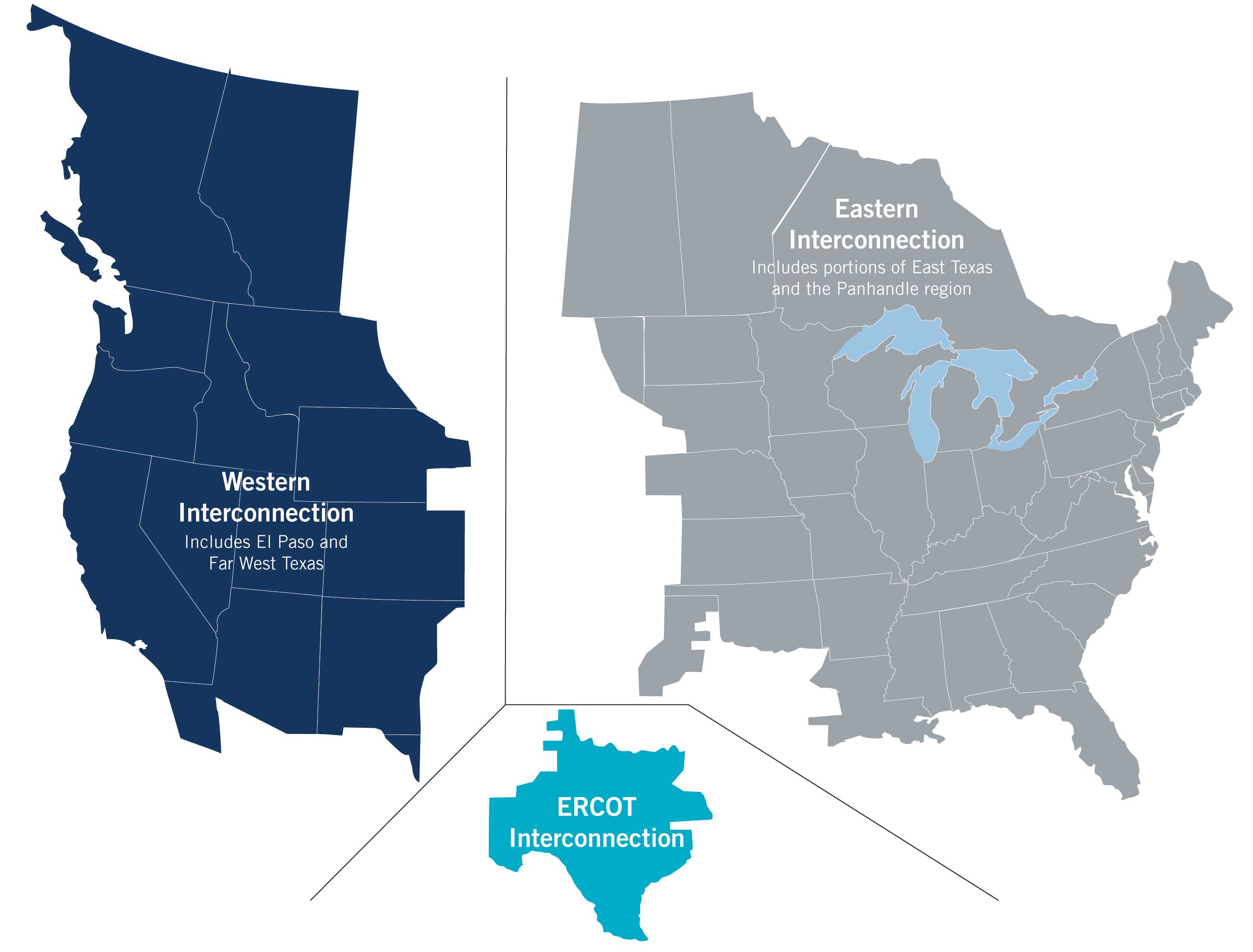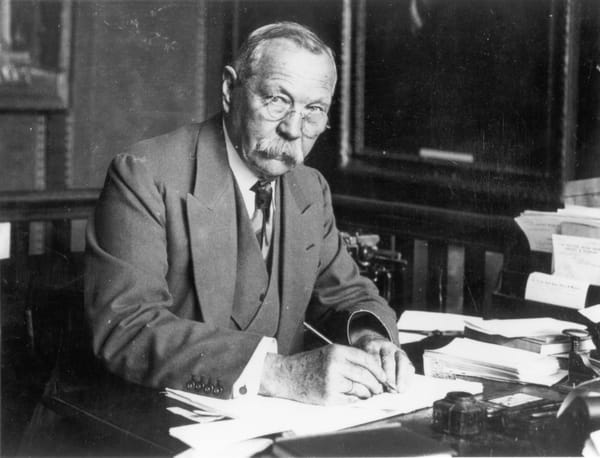Note 25: Windmills in the laboratories of democracy
Nachthexen and Polarwirbel.
Apologies that these Notes have slipped from their regular mid-week publish times to week-end publish times for the past couple of weeks. Work’s kept me very busy, and my time to write during the week has been an early casualty of my workload. My constant occupation with other peoples’ projects has also sapped my overall receptiveness toward topics that I felt were interesting enough to write about, which made pushing the Notes later in the week easier.
That said, outside of work, I was very pleased to see that Apple’s started releasing new episodes of my favorite new TV discovery of 2020:
Like Disney, Apple is releasing these episodes once a week, instead of the Netflix-style full-season dumps that would otherwise have me binging through a show on a weekend. Honestly, I feel like I’m getting a bit too old to indulge in the “let’s watch the latest season of Daredevil this weekend” that I was able to do not to long ago.
Before “For All Mankind”, Holly and I have been enjoying Disney+’s “Wandavision”, given that new MCU content has been sparse as of late. While I’m annoyed at all the geek news sites rushing to publish their take on the latest episode during the butt-crack of dawn when an episode lands, and I have to manage avoiding spoilers throughout the day, “Wandavision” has been a nice prize for the end of the week after I get home from the office. I’m pleased that for another ten weeks (or so), I’ll have something even better to look forward to. (And a word of advice: the space scenes in “For All Mankind” are incredible, but can be difficult to see when sunlight glaring through the blinds is reflecting off the television.)
“Remember (to winterize) the Alamo!”
Before I get too deep into the weeds of this week’s topic, I want to say upfront that what I think has gone on in Texas over the past week is atrocious, and I’m disappointed that some of my friends and family members had to deal with polar vortex temperatures, faulty electrical systems, and failing water systems. The greatest tragedy here was that all of it was completely avoidable.
To recap, Arctic air from the polar vortex dipped a good bit further south than it usually does in the winter, and much of the middle of America was caught unprepared for the low temperatures. Areas where homes are heated primarily by electricity found that their electric heaters did not keep up with falling temperatures, fuel extraction and transportation networks found themselves frozen, and we saw widespread energy infrastructure failures during a time when people could least tolerate it. The situation was quickly politicized, with one side blaming green energy for being unable to keep up, and the other side blaming areas like Texas for a poorly-regulated market that failed to charge customers for the price of things like winterization of the local infrastructure.
While I’m firmly on the side of that thinks Texas’ failure was a lack of regulation mandating winterization of their electric infrastructure (see how well El Paso weathered the winter as a point of comparison with the rest of Texas), my goal in writing isn’t to admonish Texans to update their state, but rather to point out that this episode demonstrates how our vaunted “laboratories of democracy” are supposed to work.
To recap for the folks who skipped “School House Rock” or blanked out high school Civics class, the phrase “laboratories of democracy” comes out of a Supreme Court case (New State Ice Co. v. Liebmann) from Oklahoma revolving around whether an unlicensed ice seller could sell ice in a jurisdiction where a license was required. The Court ruled that Oklahoma couldn’t deny Liebmann his right to sell ice, and Justice Louis Brandeis dissented, arguing that the state was within its power to require licenses to sell ice.
The business of selling frozen water isn’t what’s interesting about Brandeis’ dissent, rather his description of the American federal system:
To stay experimentation in things social and economic is a grave responsibility. Denial of the right to experiment may be fraught with serious consequences to the nation. It is one of the happy incidents of the federal system that a single courageous State may, if its citizens choose, serve as a laboratory; and try novel social and economic experiments without risk to the rest of the country.
Brandeis argued that the Court had no superior knowledge over the OK state legislature, and that states should be free to act as laboratories for new policies that don’t negatively affect other states. And this is precisely what we saw in Texas this week.
The experiment that Texas conducted on our behalf wasn’t one of environmental policy or picking between renewable energy sources and fossil fuels - it was determining what happens when you attempt to to go all-in with market-based thinking to the detriment of everyone else.

In 2002, Texas deregulated their energy market over an electric grid that covers most of the state, save for the western- and eastern-most areas and set up a non-profit to manage the grid called ERCOT. In this area, there are two main companies that consumers deal with for their electricity. You have the transmitters, which are the companies that own and operate the physical infrastructure that gets electricity to your home. And you have the suppliers, which are the companies that you actually purchase the power from, and who bill consumers for the bulk of their electricity spend (the transmitters charge a flat fee for use of their infrastructure). The transmitters remained regulated utilities, while the suppliers were deregulated, allowing new entrants into the market to sell power to Texas consumers.
If you’ll allow me a brief detour, a decade ago, I served as the Chief Technology Officer for a Chicago start-up called Power2Switch, founded by Seyi Fabode and Phil Nevels. Illinois had just deregulated its market, and Fabode and Nevels identified a functional gap to be filled, which was giving Illinois electric consumers “apples-to-apples comparisons” between different electric suppliers. Before I joined, they had a functional prototype that implemented automated electrical sign-ups in the northern ComEd region of Illinois, and after I joined, I created infrastructure that allowed them to also service the Amaren region downstate, expand into Ohio’s newly-deregulated market, and finally expand into Texas. In Illinois and Ohio, the way the market was structured was that we essentially functioned as lead-generation for the suppliers. We would gather the consumer’s relevant information and pass it on to the suppliers. The supplier would do their due diligence on the customer (typically credit checks), and handle the signup from there. It could take several days to a week to confirm the switch.
The Texas market was different and designed to run on a much faster tempo. Instead of serving as simple lead generators there, we would collect all the relevant information, run the credit checks (sometimes necessary before we could show the customer a final billing rate), and in the end, we would push their order through to the supplier. Where switches in Illinois were on the order of days and weeks, Texas was a state where something could happen in hours (this will become relevant below). The market was designed to encourage customer churn and we saw plenty of suppliers active in Texas, fighting for lower rates to become the center of gravity of electric customer acquisition.
Now here’s the thing about markets full of churn: when customers can switch service providers as easily as they could in Texas, it creates an incentive for lower and lower prices, with the margin of the sales going down for each customer (“we’ll make it up in volume”).
Competition is fierce and customers benefit with lower prices. Win-Win, right?
Not so much. Texas, in its zeal to avoid any sort of federal interference in its electricity market, created an energy island. Elsewhere in the United States (and Canada and Mexico), the electric grids are pretty heavily interconnected as a redundancy measure. If Illinois experiences a drop in generation capacity due to freak weather, we can import power from other areas that are still generating power without any problems. Prices will rise (it’s tricky transmitting large amounts of power long-distance), but we’ll see a slightly-higher electric bill at the end of the month. This isn’t the case in Texas. What power is generated in Texas stays in Texas, and that’s all the power that Texas has at its disposal. There are a handful of connections with other grids in the US and Mexico, but not large enough to make up for an meaningful shortfalls. (The connections are there so that the companies maintaining them can switch to the cheaper grid for their customers. This is not scalable to a full state.)
Other than being isolated from other sources that would be happy to sell Texans power, the second problem is that not all suppliers in Texas actually create their own electricity, and don’t actually have the ability to add more power to the state as demand rises. Some of these suppliers are no more than finance weenies playing the commodities game buying and selling power from the folks who actually own and operate generators. (If you can arbitrage well, you make money.) There’s been no better example of this than the supplier Griddy, which charged its customers a flat monthly rate plus the wholesale price of electricity consumed. This is great for the consumer when the grid is operating nominally, but the rising wholesale price of electricity had them advising their customers to go somewhere else, lest they be on the hook for thousands of dollars for a few days’ of power. (More on this below.) Griddy had no infrastructure that it could spin up to add more power - its customers were entirely at the mercy of a hostile market. To compound the problem, its flat rate model didn’t protect its customers in the same way as traditional suppliers purchasing power ahead of time (at lower fixed prices) for the duration of a new customer’s contract.
So, in addition to being an energy island, and finance weenies pretending to be power generators, the third mistake that Texas made was that in its zeal for deregulation, it failed to impose any meaningful standards for power plant operation, even after a similar cold spell in 2011 (note that El Paso learned from that incident and was fine this year). So, in a market without standards for cold-weather operation, suppliers competing on thinner and thinner margins, and an isolated grid independent of any federal standards, you end up with a state that was simply unwilling to pay a little bit more for reliability on its power bills. To quote former Texas governor and Secretary of Energy Rick Perry:
“Texans would be without electricity for longer than three days to keep the federal government out of their business,” Gov. Perry said, partly rhetorically. “Try not to let whatever the crisis of the day is take your eye off of having a resilient grid that keeps America safe personally, economically, and strategically.”
We’ll find out soon enough if Perry is correct about the sentiments of his fellow Texans.
To get back to our “laboratories of democracy”, it’s pretty clear that Texas tried an experiment in radical deregulation of its energy market and that experiment failed spectacularly. (When your Junior Senator attempts to flee to Mexico to keep warm, that’s a pretty solid “this didn’t work”.)
Texans - with their sacrifice this week - provided us some solid pointers in how not to regulate electricity markets. And unlike a lot of other state-based experiments, Texans bore the cost of the consequences and externalities of their collective choice. Their failure didn’t bleed into other states (other than the rest of us paying for FEMA to help sort them out). While it sucks for Griddy customers that they were not able to switch to other suppliers as quickly as they would like (and racked up massive bills in the process), I was glad to see the other suppliers delay Griddy customers’ start dates. The reason for this is that unlike the finance weenies happy to serve as a naked conduit to the wholesale market for a flat fee, other suppliers were able to build up enough physical and financial infrastructure - through higher costs - that protected their customers’ exposure. It was never clear to me why Griddy would be allowed to freeload off of its competitors foresight, and I’m glad that it’s likely they’ll face some consequences for their crappy business model.
If you’re a Texas reader and this seems unfair and/or harsh - I apologize for my indelicate style. That said, if you don’t want to go through this again, follow El Paso’s example and elect a government that learns from this year’s mistakes. If I were a resident Texan (my inner New Mexican shudders uncontrollably), I would be agitating for a minimum of:
- Regulations that mandate that all power generation infrastructure be operable for extended periods in sub-zero conditions. Contra Crenshaw, the polar vortex will be continue visiting much more frequently than once a century.
- Mandates that electric suppliers must have the ability to contribute power to the grid. Kick the finance weenies out of the market so that there’s a shared incentive to upgrade infrastructure, and not allow freeloaders without infrastructure of their own into the market. If this means that suppliers must purchase generators (or vice versa), so be it. All of the players should have some infrastructure skin in the game.
- Set up a public “cold day fund” that models the Universal Service Fund where a portion of everyone’s electric bill goes toward a state fund to help alleviate any economic impacts from future cold snaps, such as the current costs for FEMA’s presence in a state hostile to federal intervention.
What I wouldn’t worry about too much is whether Texas should focus on more fossil fuels versus green energy. While I’m on the side of green energy here (though I’m an even bigger nuclear fan), fossil fuel infrastructure froze up as well, so doubling down on petroleum without winterizing will likely repeat this experience all over again.
That said, until the day that Texas connects its grid to the rest of the nation, I’m less concerned about what Texas does energy-wise than neighboring states like Indiana and Wisconsin. As we’ve seen this month, Texas is uniquely situated to be an ideal laboratory for energy policy, so if its citizens remain content serving as the nation’s guinea pig, who am I to argue with that?
Book reports
Stay Home: The Ugly Truth About Space Travel by Don Moyer (★★★★☆): A fun little book that humorously investigates the downside of space travel. It’s so short that there’s not too much to say about it other than it would be a fun gift for the space aficionado in your circles.
40 Semi-Obvious Lessons: From Building, Selling A Business & Working with 100's of Entrepreneurs by Seyi Fabode (★★★★☆): While I would have liked to see Seyi (founder of Power2Switch from earlier) expand on this a bit more, the short punchy structure may be more intended for the busy start-up founder busy with a million other things than the fellow looking for a deep-dive into his experience with more examples. (Fortunately, I was around to witness him learning some of these!)
Daughters of the Night Sky by Aimie K. Runyan (★★★★☆): Dear Penthouse: When I purchased this book, I was under the impression that I was purchasing a non-fiction memoir of one of the Soviet Night Witches who made Nazi Germany’s life a living hell on the Eastern Front of the European theater of World War II. What I received instead was a minor bodice-ripper that made me blush on my train rides home. (Слава богу за холода!) Fortunately, this did feature some solid non-sexy storytelling, and roughly followed the outlines of what a real Night Witch might have experienced, had I read an actual memoir instead.

I made up some lost time this week (with two smaller books), so I’m currently on track for the goal (14 of 100).
Interesting reads
The strange fate of a person falling into a black hole (BBC)
A Harriet Tubman $20? That’s Just the Beginning (Politico)
Looking forward to getting back on the Wednesday publishing schedule this week, CMDRs. However, I make no promises!



